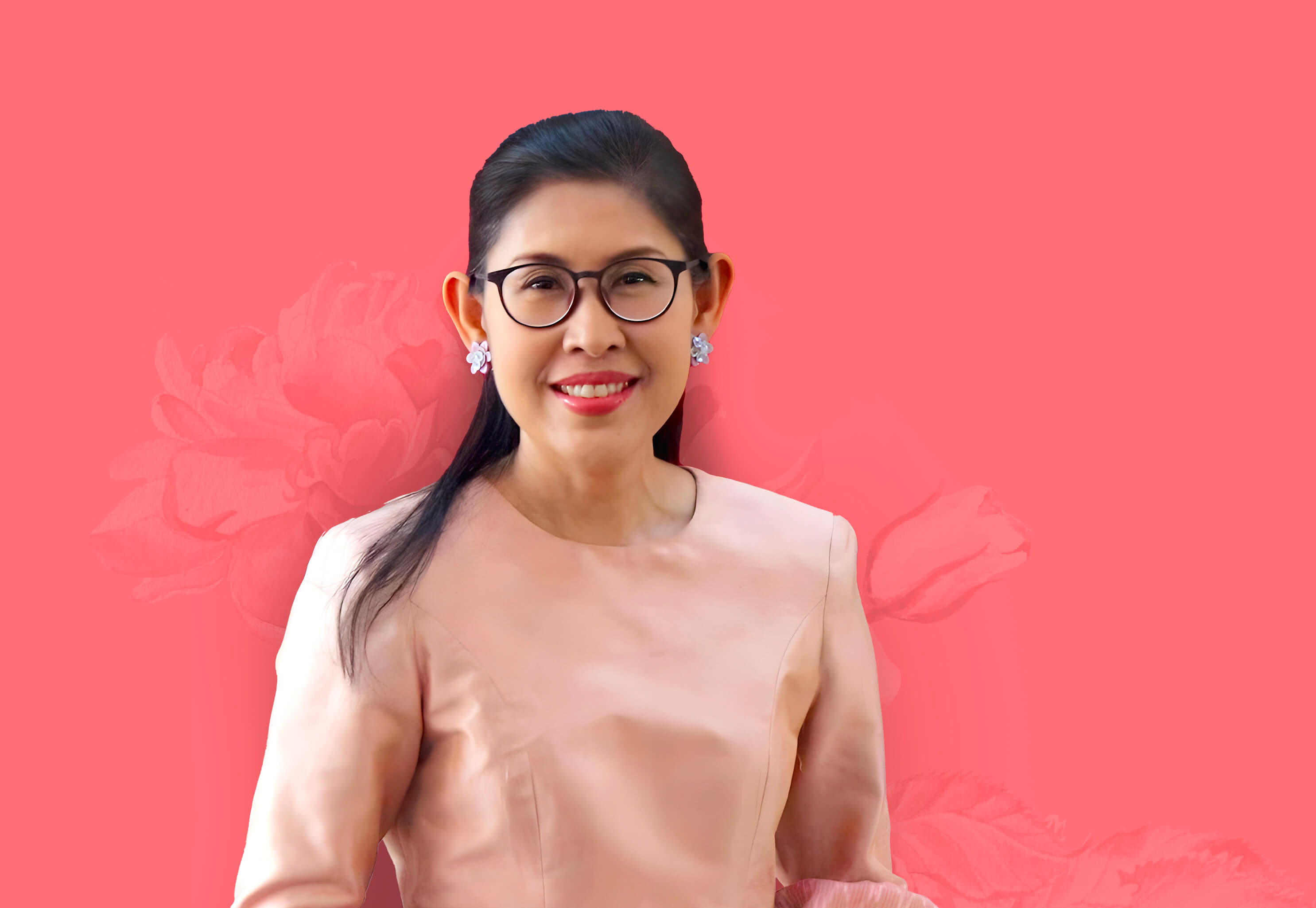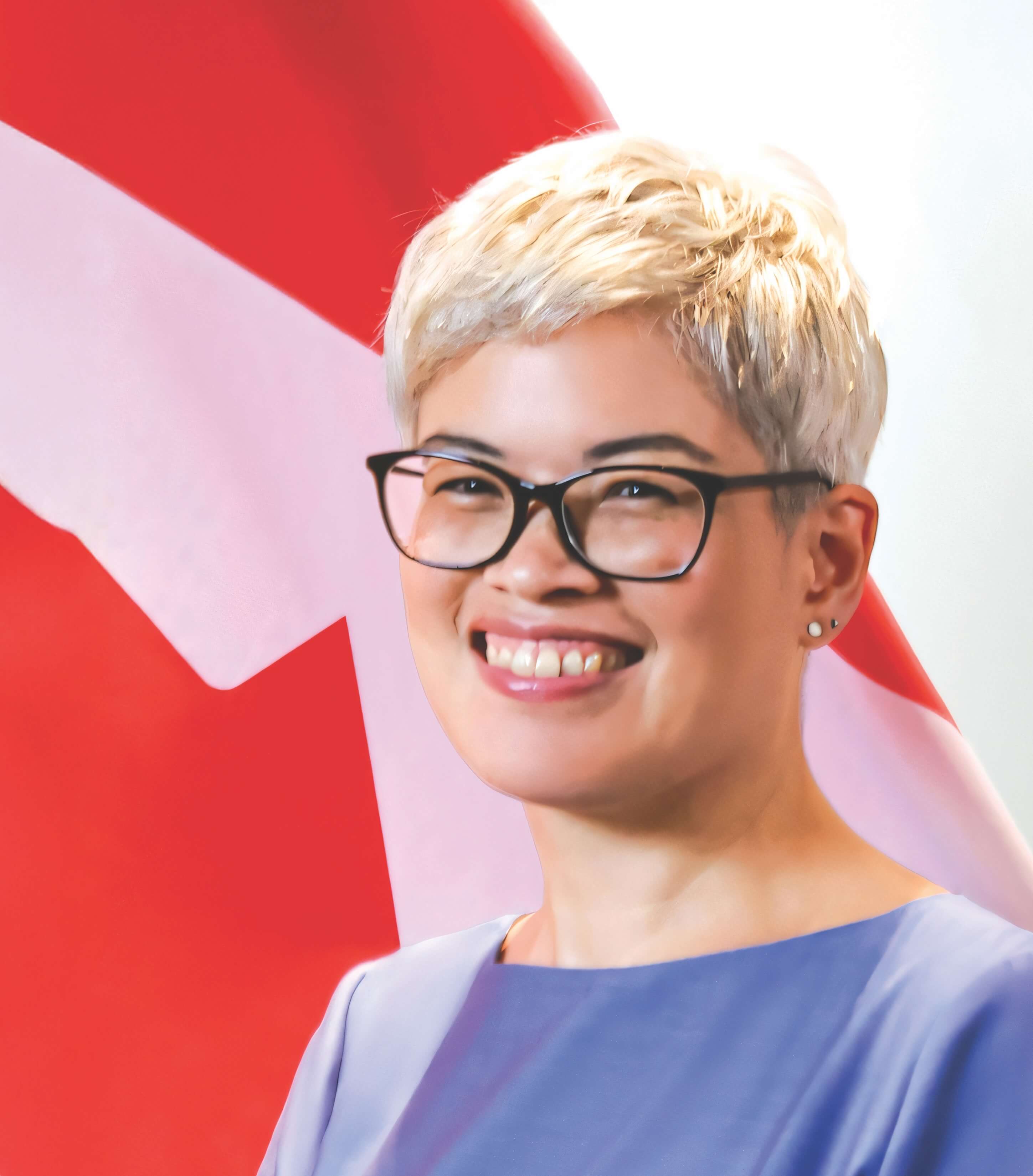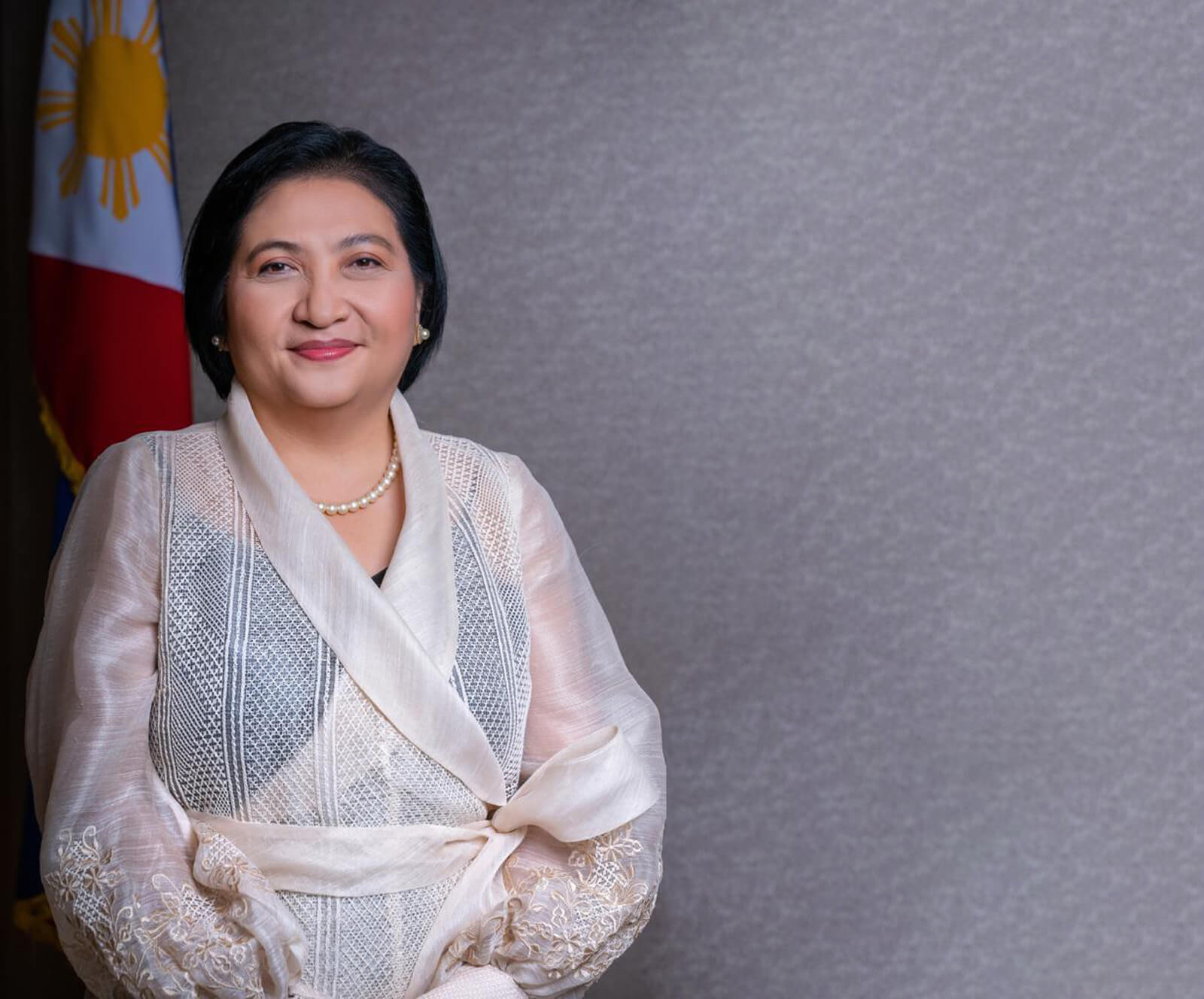


Ambassador Urawadee Sriphiromya served as the Permanent Representative of Thailand to ASEAN from 2021 to 2024. Ambassador Urawadee gave this interview shortly before she left Jakarta on March 2024 for her next assignment as Ambassador of Thailand to Viet Nam. The Ambassador shared valuable insights on the crucial role women play in shaping ASEAN's policies and strategies for the future.
How important is women’s participation in policy decision-making platforms and mechanisms? How does women’s participation in promoting an inclusive, gender-respon
It is undeniable that women have a very important role to play in society in every part of the world. Women significantly contribute to society through their roles as mothers, wives, teachers, heads of families, caregivers, and so on. Women are also crucial in promoting peace, prosperity, and national development.
When women are given equal rights and opportunities, they can multiply development gains and make great progress towards sustainable development. All 15 goals of the Sustainable Development Goals cannot be achieved without Goal No. 5: Achieve gender equality and empower all women and girls.
It is encouraging that ASEAN is committed to promoting women’s participation as reflected in the ASEAN Declaration on the Gender-Responsive Implementation of the ASEAN Community Vision 2025 and Sustainable Development Goal 5 (SDG5) on Gender Equality.
I recognise the indispensable role of women’s participation in policy decision-making, whether political or economic. It undoubtedly contributes to policies that are effective and responsive to the needs of all groups of the society, vital to achieving inclusive development. Women’s representation in decision-making mechanisms brings more diverse perspectives and helps in making informed decisions. Meaningful participation of women at all levels is crucial to realising gender equality.
Currently, the Committee of the Permanent Representatives of ASEAN comprises four women, i.e. Brunei Darussalam, Malaysia, the Philippines and Thailand. We are very pleased that we now have a female Deputy Secretary- General of ASEAN and another lady Ambassador from Timor-Leste. We all contribute to the work of ASEAN in various areas. We believe that ASEAN must continue to champion women’s participation if we want to promote inclusive and gender-responsive communities within ASEAN and beyond.
What notable achievements in women’s empowerment and gender equality both in Thailand and in ASEAN do you consider inspirational?
ASEAN Member States are working together to enhance women’s empowerment and gender equality. There are a number of notable achievements that I consider inspirational.
For Thailand, the 2015 Gender Equality Act provides the necessary legal and policy framework for Thailand to safeguard individuals from gender-based discrimination in all sectors of Thai society. I also wish to emphasise the Handbook for Gender Responsive Budgeting, which was used as a mechanism for governmental bodies to assess if resources allocated or spent are in accordance with policies to integrate a gender perspective throughout the budgetary cycle.
Thailand is working with ASEAN Member States to implement gender mainstreaming initiatives, notably within the ambit of ASEAN Committee on Women (ACW) and the ASEAN Commission on the Promotion and Protection of the Rights of Women and Children (ACWC). Under the ACW Work Plan 2021–2025, Thailand has spearheaded ASEAN efforts to address gender stereotypes and sexist language in education materials at primary and secondary levels, resulting in a sourcebook for schools that significantly helps promote gender equality in education across the region.
The joint efforts of ACW and ACWC Thailand have led to the initiation of the ASEAN Regional Plan of Action on the Elimination of Violence Against Women (RPA on EVAW) 2016–2025. This plan provides a comprehensive framework for guiding regional and national efforts to address and prevent a case of gender-based violence effectively.
The outputs of these initiatives include developing informative materials such as infographics, claymation animations, and short films with Thai audio and English subtitles aimed at raising awareness of gender equality and eliminating gender stereotypes in education.
Moreover, ACWC Thailand is currently developing a project proposal entitled “Enhancing the gender-responsive treatment of women prisoners in ASEAN,” which will provide information and broaden our understanding of the characteristics of women prisoners, and enhance regional cooperation to promote gender-responsive treatment of women prisoners. This initiative will support the implementation of the United Nations Rules for the Treatment of Women Prisoners and Non-Custodial Measures for Women Offenders (the UN Bangkok Rules) and underscore Thailand’s commitment to advancing gender equality within ASEAN and contribute to the region’s collective vision of a more inclusive and equitable society.
How do you foresee ASEAN elevating its commitment to action on gender equality and women empowerment post-2025?
These days, ASEAN is strongly committed to addressing gender inequality and stepping up measures to promote women’s empowerment. With the valuable support of our dialogue partners and other External Partners who share our concerns, progress on the two issues has accelerated.
As we reflect on ASEAN’s trajectory post- 2025, we are fully aware of the persistent gender disparities highlighted in the ASEAN Gender Outlook report. Despite progress in various areas of sustainable development, inequalities persist, reflecting the urgent need for targeted action. Data reveals that women in ASEAN continue to be underrepresented in positions of leadership and decision-making, constituting only 20 per cent of parliament seats and 24 per cent of middle and senior management roles in the private sector.
Alarmingly, 24 per cent of young women in ASEAN are neither in education nor employment, compared to 13 per cent of young men, highlighting barriers that disproportionately affect women. Additionally, the prevalence of child marriage remains a concern, with 16 per cent of girls marrying before turning 18, risking their health, education, and future prospects. Despite these challenges, there is cause for optimism in initiatives aimed at integrating a gender perspective across all ASEAN pillars.
The establishment of ASEAN Gender Mainstreaming Working Groups presents a significant opportunity to bridge gender disparities and promote social inclusion across the region. By embedding gender and social inclusion principles into policy formulation and implementation, ASEAN will elevate its commitment to meaningful action and substantive change. However, achieving gender parity and empowering women require concerted efforts and political will from all ASEAN Member States. It is only through collaborative action and a steadfast commitment to gender equality that ASEAN can truly realise its vision of a more inclusive and equitable regional community.
What would be your advice to women, especially young women, who are contemplating taking a stronger leadership role in their respective fields?
I would like to convey to them that there are great opportunities out there in our country, our region, and even the world. Let us overcome the barriers and help create an enabling environment for women and girls to become empowered and develop their fullest potential.
Each of us, women and girls, should take the future into our own hands. With knowledge and strength, it is time for us to play the leading role in our respective fields and bring about changes to our societies, our countries, our region, and our world. The task is never easy but we have seen successful women leaders. Let us be inspired, let us be confident, you can do it!
For all the men and women in the society, empowering women goes beyond individual efforts; it requires systemic change and societal support. Society must cultivate a supportive environment for women by promoting gender equality perspectives, encouraging the sharing of household responsibilities, and actively combating gender-based discrimination.
I thank everyone who supports the empowerment of women.








